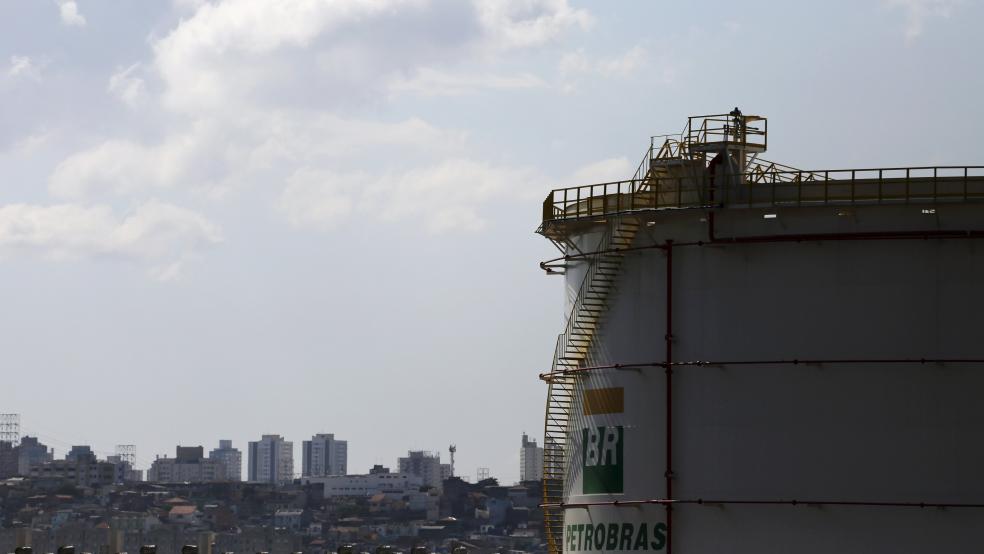RIO DE JANEIRO (Reuters) - Brazil's state-run oil company, Petrobras, has failed to present its board of directors with a promised plan to bring domestic fuel prices in line with world levels, three sources with direct knowledge of the situation told Reuters.
The lack of a policy threatens the company's already-fragile finances and could delay efforts to sell refineries and other assets, said the sources, who asked for anonymity because they are not authorized to talk to the media.Petroleo Brasileiro SA, as Petrobras is formally known, has promised to sell $15.1 billion of assets by the end of 2016 and reduce its $120 billion debt, the largest of any oil company."Who in their right mind would buy a refinery or a stake in a Petrobras refinery if there is no clear formula under which they will be allowed sell their product?" one of the sources said. "How will investors take the company seriously when it keeps promising a policy and then never provides one?"Brazil's government, which owns a majority of Petrobras common stock and appoints a majority of the board, has long blocked domestic fuel price increases in an effort to control inflation, which at 8.9 percent in July was nearly double the government's target.Petrobras officials were not immediately available to comment on Monday. Among the refinery assets Petrobras seeks to sell is a stake in the Comperj Refinery outside Rio de Janeiro.Petrobras wants a partner to help complete the $15 billion refinery. While unfinished, Comperj is already one of the most expensive refineries ever built and a focus in a massive bribery probe. "We expect it will take until mid-2016 to settle the question of Comperj," a second source said.The biggest risk of a lack of a price policy is a revival of fuel-price subsidies, the sources said. Petrobras' 13 refineries cannot meet Brazilian demand. With domestic prices fixed below world prices, imports are sold at a loss.Such subsidies caused about 60 billion reais ($17.4 billion) of fuel-sales losses in recent years.Chief Executive Aldemir Bendine has also said that Petrobras will likely be unable to finance its $130.1 billion investment plan for 2015-2019 without parity between domestic and international prices.Imported gasoline now costs about 3 percent more than the Petrobras price at its refinery gates and diesel costs 3 to 4 percent less, the sources said.That means Petrobras, whose subsidies fell to zero earlier this year as world oil prices fell, is now subsidizing gasoline again. ($1 =3.45 Brazilian reais) (Additional reporting by Rodrigo Viga Gaier; Writing by Jeb Blount; Editing by Matthew Lewis)Exclusive: Petrobras drags heels on Brazil fuel-price policy - sources

© Nacho Doce / Reuters



